Guide to Moving Machinery and Industrial Equipment in Dubai
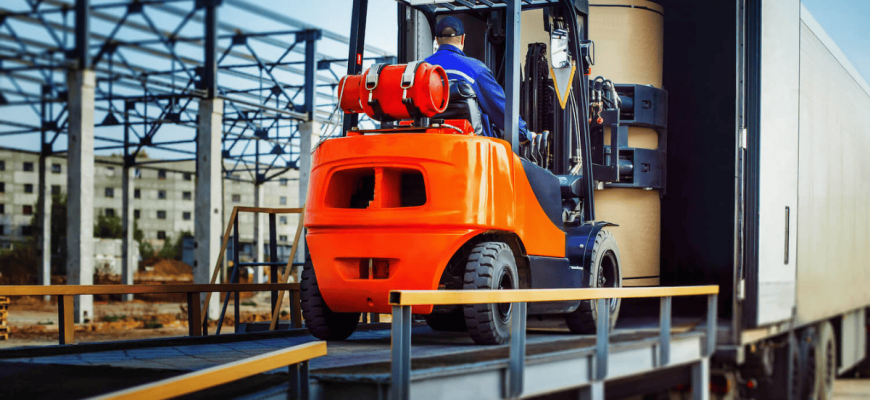
Relocating industrial equipment and heavy machinery is a complex process that demands precision, expertise, and strategic planning. Unlike standard residential or office moves, machinery transportation involves logistical hurdles, weight distribution challenges, and the risk of operational downtime. Whether shifting an entire factory or relocating a single piece of equipment, businesses must prioritize efficiency, safety, and compliance.
Understanding the Complexity of Machinery Relocation
Industrial machinery is often custom-built, highly sensitive, and designed for specific operational environments. Moving such equipment without proper preparation can result in severe damage, calibration issues, or safety hazards.
Some key challenges include:
- Weight and Size Considerations: Many industrial machines exceed several tons, requiring specialized transport vehicles and lifting equipment.
- Precision Handling: CNC machines, robotics, and other high-tech equipment must be moved without disrupting their intricate alignments.
- Regulatory Compliance: Cross-border transportation or even local moves may require permits, inspections, and adherence to transportation laws.
- Downtime Mitigation: Any delay in relocation can lead to costly operational interruptions, making efficiency a top priority.
Essential Steps for Moving Industrial Equipment
1. Conduct a Thorough Site Assessment
Before any relocation begins, perform a comprehensive site evaluation to understand access points, potential obstacles, and the structural limitations of the new location.
- Identify clearance restrictions, floor load capacities, and power supply compatibility.
- Plan exit and entry strategies to avoid last-minute modifications or unforeseen hindrances.
2. Develop a Customized Moving Plan
A one-size-fits-all approach does not work for industrial relocations. Tailor your moving strategy based on the specific requirements of each machine.
- Disassembly and Labeling: If applicable, dismantle complex machinery into manageable components and label them for reassembly.
- Secure Packing: Use industrial-grade padding, shock absorbers, and climate-controlled containers for fragile equipment.
- Transportation Route Planning: Map out the safest and most efficient transport routes, factoring in road weight limits and traffic regulations.
3. Use Specialized Lifting and Transport Equipment
Handling heavy machinery requires more than manpower. Leverage technology and specialized equipment to minimize risks.
- Hydraulic Lifts & Cranes: Essential for lifting multi-ton machinery without causing structural damage.
- Air-Ride Trailers: These trailers reduce vibrations during transport, preventing sensitive equipment from misaligning.
- Heavy-Duty Dollies & Skates: Ideal for maneuvering large machines through tight spaces.
4. Ensure Safety and Regulatory Compliance
Safety is paramount when dealing with high-value and heavy-duty equipment. Neglecting compliance can lead to legal complications and costly delays.
- Train personnel on proper handling and lifting techniques to prevent injuries.
- Verify that all transportation vehicles and lifting equipment meet regulatory standards.
- Obtain necessary permits if moving oversized loads across regions.
5. Reinstallation and Calibration at the New Site
Once at the destination, the reinstallation phase is just as crucial as transportation.
- Hire skilled technicians to ensure all components are reassembled correctly.
- Perform equipment testing and calibration to guarantee functionality.
- Conduct a safety check before full-scale operation resumes.
Partnering with Experts for Safe and Secure Moving Services in Dubai
Industrial moves demand a high level of expertise, and choosing the right relocation partner can make all the difference. Safe and Secure Moving Services ensure that your machinery reaches its new location without damage, delays, or compliance issues. Professional moving companies utilize advanced equipment, experienced handlers, and strategic planning to guarantee a hassle-free transition.
Final verdict
Relocating industrial machinery is a task that requires detailed planning, specialized equipment, and adherence to safety protocols. By investing in the right moving strategies and collaborating with expert movers, businesses can ensure a seamless transition while minimizing operational disruptions. Whether relocating within Dubai or across borders, prioritizing safe and secure transportation is the key to maintaining business continuity and equipment longevity.
Understanding the Benefits of Water Tube Boilers in Dubai: Efficient Solutions for Modern Industries
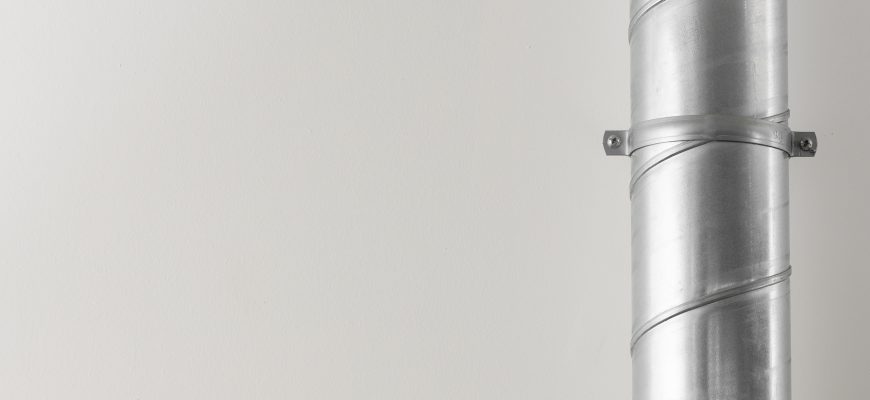
Understanding the Benefits of Water Tube Boilers in Dubai: Efficient Solutions for Modern Industries
In Dubai, industries rely on powerful machinery to keep up with business demands. Boilers, a key piece of equipment in many factories and plants, play a big role in keeping things running smoothly. Among the different types of boilers, water tube boilers have become popular because they are efficient, durable, and fit well with various industrial needs. These boilers save energy and handle large workloads, making them an ideal choice for industries in Dubai. Here we will look at why water tube boilers are so beneficial and why they are the best choice for industrial boiler needs in the region.
What Are Water Tube Boilers?
Water tube boilers are boilers where water circulates inside tubes within the boiler’s furnace, which heats up due to combustion (the burning of fuel). This heat turns the water into steam. Unlike fire-tube boilers, which move hot gases through tubes surrounded by water, water-tube boilers use the opposite setup. This design helps them produce high-pressure steam efficiently, making them a good fit for large industrial needs in Dubai’s demanding climate.
Why Choose Water Tube Boilers in Dubai?
Industries in Dubai—from manufacturing and power generation to food processing and petrochemicals—need equipment that can handle high energy needs efficiently. Water tube boilers provide many benefits that make them a top choice for businesses in Dubai’s hot and dry environment.
Key Benefits of Water Tube Boilers
-
High Efficiency and Fuel Savings
Water tube boilers are very fuel-efficient, which helps industries cut down on fuel costs. They heat water quickly and use less fuel to create steam, which results in significant long-term savings. Since energy costs in Dubai can be high, this efficiency helps businesses save money and makes water tube boilers a smart, sustainable choice.
-
Strong Steam Output for Industrial Use
Water tube boilers are designed to produce large amounts of steam quickly, which is essential for industries that need a constant steam supply, like food processing, power plants, and petrochemical factories. Their ability to produce high-pressure steam ensures that companies can scale up operations smoothly without risking delays.
-
Handles High Pressure and Temperature
Water tube boilers can work at higher pressures and temperatures than other types of boilers, which is crucial for industries in Dubai where operations are intense. This durability reduces the risk of breakdowns and increases the lifespan of the equipment, even in challenging conditions.
-
Enhanced Safety Features
Safety is essential in any industrial setting, and water tube boilers are known for their built-in safety features. Their design helps contain high pressure within the water-filled tubes, reducing the risk of explosions. Plus, water tube boilers can cool down quickly in case of an emergency, making them a safer choice compared to fire-tube boilers in risky environments.
-
Compact Design and Space Savings
Space can be costly and limited in Dubai, and the compact design of water tube boilers helps industries save valuable floor space. Unlike large, bulky fire-tube boilers, water tube boilers have a more streamlined design, allowing businesses to fit more equipment into their facilities, which increases productivity.
-
Environmentally Friendly and Compliant
Dubai is focusing more on sustainability, and water tube boilers are an eco-friendlier option. They use fuel efficiently, which results in fewer emissions and aligns with the UAE’s environmental regulations. For businesses looking to reduce their environmental impact, water tube boilers support these sustainability goals.
Applications of Water Tube Boilers in Dubai’s Industrial Sector
Water tube boilers are versatile and can be used in many industries, making them a top choice for companies in Dubai needing powerful boiler systems. Here are some common uses:
- Power Plants: These boilers are used in power plants because they produce high-pressure steam, which is essential for running turbines and generating electricity.
- Petrochemical Industry: The petrochemical industry needs high-pressure steam for refining, and water tube boilers can handle the high pressures and temperatures required in this field.
- Food and Beverage Production: In food processing, where reliable, high-quality steam is crucial, water tube boilers ensure a steady and consistent steam supply for ongoing production.
- Pharmaceutical Manufacturing: For pharmaceuticals, where precise control over temperature and pressure is necessary, water tube boilers offer an efficient solution to achieve reliable results.
For Dubai industries, water tube boilers are a smart investment, offering efficient, reliable, and environmentally friendly operations. Their ability to produce high-pressure steam, work safely under high demands, and save energy makes them an excellent choice for modern industrial needs. These boilers help companies improve performance and reduce costs, making them a valuable asset in today’s competitive market.
If you’re considering a new boiler or an upgrade, Hotline Trading can help you find the best water tube boiler to fit your business needs. Contact Hotline Trading today to learn how our industrial boiler solutions can help your business succeed in Dubai’s fast-paced industrial landscape.
How Smart Technology is Enhancing the Efficiency of Solar Hot Water Systems
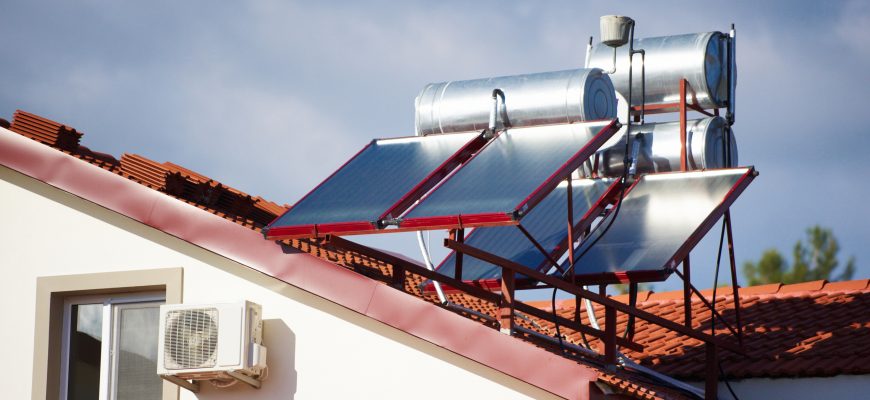
The advancement of smart technology is revolutionising various industries, and the solar energy sector is no exception. Among the many innovations in renewable energy, smart technology is now playing a major role in enhancing the efficiency and effectiveness of solar hot water systems. In places like Dubai, where sunlight is abundant, solar hot water systems are already a popular choice for homeowners and businesses alike. But with the integration of smart technology, these systems are becoming even more reliable, cost-effective, and environmentally friendly.
Here, we will explore how smart technology is transforming the solar hot water system in Dubai and beyond, its benefits, and why you should consider upgrading to a smart solar hot water system for your home or business.
What Is a Solar Hot Water System?
A solar hot water system harnesses the power of the sun to heat water for domestic or commercial use. These systems typically consist of solar collectors that absorb solar energy, a water storage tank, and a pump system to circulate the water. While the technology has been around for years, the integration of smart controls and IoT (Internet of Things) devices has taken solar water heating to new heights of efficiency.
How Smart Technology Is Enhancing Solar Hot Water Systems
1. Smart Monitoring and Remote Control
One of the most significant advancements in solar hot water systems is the incorporation of smart monitoring systems. These systems provide real-time data on the performance of the solar hot water system, enabling homeowners and technicians to monitor the system remotely.
For instance, you can receive alerts on your smartphone if the system is not performing at optimal levels or if there is an issue with the pump or solar collectors. This type of monitoring allows for faster troubleshooting and minimizes downtime. Furthermore, remote control features enable users to adjust system settings from anywhere, improving overall efficiency and user experience.
2. Energy Efficiency Optimization
Smart technology is helping solar hot water systems become even more energy-efficient. By incorporating smart thermostats and sensors, these systems can automatically adjust water temperature based on usage patterns, reducing the amount of energy needed to heat water.
For example, if the system detects lower hot water usage during certain hours, it can reduce heating activity during those times, conserving energy. This is particularly useful in climates like Dubai, where temperature fluctuations can be extreme, and energy savings can be maximized by adjusting heating schedules accordingly.
3. Predictive Maintenance
Predictive maintenance is another area where smart technology is making a difference. With built-in sensors and IoT devices, smart solar hot water systems can predict when a component is about to fail or when routine maintenance is required. This proactive approach reduces the likelihood of system breakdowns and extends the lifespan of the solar hot water system.
In the past, homeowners had to rely on regular manual inspections or wait for a failure before addressing issues. Now, smart systems can send notifications to technicians and homeowners, enabling timely repairs and minimizing operational disruptions.
4. Integration with Smart Home Systems
Today’s smart solar hot water systems can be integrated into broader smart home ecosystems. This means your solar water heater can communicate with other devices like smart thermostats, home automation hubs, and even voice-activated assistants like Alexa or Google Home.
This level of integration allows for enhanced control and energy management. For instance, you can ask your virtual assistant to check the current status of your solar hot water system or adjust its settings based on your schedule. Such capabilities make the system more user-friendly and customizable, further improving efficiency and convenience.
5. Data Analytics for Performance Optimization
Smart solar hot water systems collect and analyze vast amounts of data on water usage patterns, energy consumption, and weather conditions. With this data, homeowners and businesses can identify areas for further efficiency improvements.
For example, data analytics might reveal that water usage peaks during certain times of day, prompting adjustments to system settings that can result in lower energy consumption and reduced utility bills. Over time, these small adjustments add up, making your system even more cost-effective.
The Benefits of Upgrading to a Smart Solar Hot Water System in Dubai
Dubai’s sunny climate makes it ideal for using solar hot water systems. When combined with smart technology, these systems offer even more benefits:
- Cost Savings: Smart solar systems use energy more efficiently, helping you save money on your electricity bills. You can also control the system remotely, which means you can avoid wasting energy when it’s not needed.
- Longer Lifespan: Smart systems monitor themselves and predict when maintenance is needed, which keeps them running smoothly for longer. This reduces the chances of expensive repairs or replacements.
- Eco-Friendly: Solar energy is a clean and renewable source. Smart technology helps the system use less energy, which means it’s better for the environment and reduces your carbon footprint.
- Convenience: With remote monitoring and control, you can easily manage your solar hot water system from anywhere. Whether you’re at home or away, you can make sure your system is working efficiently at all times.
Smart technology is transforming the way solar hot water systems operate, making them more efficient, reliable, and user-friendly. By upgrading to a smart solar hot water system, you can enjoy significant cost savings, enhanced performance, and greater control over your energy consumption.
If you’re ready to experience the benefits of a solar hot water system in Dubai, contact Hotline Trading today. Our team will guide you through the process and help you choose the best solution for your home or business.
Get in touch with Hotline Trading now to learn more about how smart solar technology can transform your energy usage!
The Importance of Air Receivers in Industrial Applications
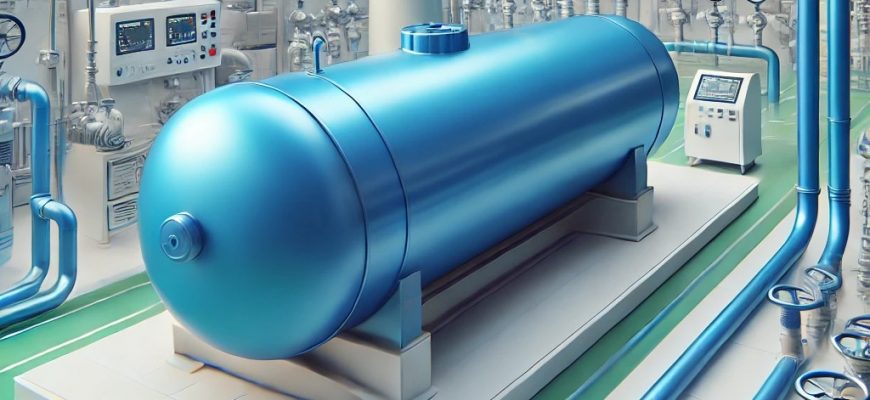
In industrial settings, air receivers play an important role that can’t be overlooked. These essential components help keep industrial air systems running efficiently and smoothly, ensuring everything operates without a hitch. By understanding the importance of how they function, and the benefits they provide, you can significantly boost the performance and longevity of your industrial machinery.
What are Air Receivers?
Air receivers, often referred to as air tanks or compressed air storage tanks, are vessels that store compressed air for future use. They are a fundamental component of industrial air systems, acting as a buffer between the compressor and the demand points. By doing so, they ensure a steady supply of air at the required pressure, even during peak usage periods.
Key Functions
1. Stabilizing Air Pressure:
Air receivers help keep the air pressure steady in the system. Compressors often cause the pressure to fluctuate because they work in cycles. An air receiver acts like a cushion, absorbing these ups and downs and providing consistent pressure. This stability is essential for tools and equipment to work smoothly and efficiently.
- Reducing Compressor Cycling:
By storing compressed air, it reduces how often compressors need to turn on and off. Frequent cycling can wear out the compressor faster and increase maintenance costs. With an air receiver, the compressor runs more efficiently and lasts longer because it doesn’t need to start and stop as much. - Improving Energy Efficiency:
Air receivers help save energy by allowing compressors to run more smoothly. During times when the demand for air is low, the compressor can keep running steadily without constantly turning on and off. This smooth operation uses less energy and lowers operational costs. - Removing Moisture and Contaminants:
When air is compressed, moisture and impurities can build up. It provides a place for these unwanted elements to settle and be drained away, protecting the rest of the equipment from damage. Regularly draining the air receiver is important to keep the air clean and dry. - Providing Surge Capacity:
Sometimes, the need for compressed air is higher than what the compressor can supply. It provides extra stored air to meet these peak demands, ensuring that production continues smoothly without any interruptions due to a lack of air supply.
Benefits
- Enhanced System Performance: They enhance the overall performance of air systems by providing a consistent and reliable air supply. This reliability is important for the undisturbed operation of machinery and tools, leading to increased productivity and efficiency.
- Extended Equipment Life: By reducing the strain on compressors and other components, They contribute to the extended lifespan of the equipment. This extension translates to lower maintenance costs and reduced downtime, offering significant financial benefits to industrial operations.
- Cost Savings: The energy efficiency gained through the use of air receivers leads to considerable cost savings. Additionally, the reduction in maintenance and repair costs further enhances the economic advantages of incorporating air receivers into industrial air systems.
- Improved Safety: Maintaining stable air pressure and reducing the presence of moisture and contaminants improve the safety. This safety is paramount in preventing accidents and ensuring a secure working environment for employees.
Choosing the Right Air Receiver
When choosing an air receiver, it’s important to consider a few key factors to ensure it fits your needs:
Capacity:
The air receiver should be the right size for your system’s needs. It should be large enough to store enough air but not so large that it becomes wasteful.
Pressure Rating:
Make sure the air receiver’s pressure rating matches the maximum pressure of your compressor and system. If the pressure rating is too low, it can cause safety and performance issues.
Material and Construction:
Air receivers are usually made from strong materials like steel. Choose one that’s built to last and can handle your working environment, including resistance to rust and wear.
Compliance with Standards:
Ensure the air receiver meets industry standards and regulations. This guarantees it’s safe and will perform well in your system.
Air receivers are important parts of industrial air systems, ensuring everything runs smoothly and efficiently. They help keep air pressure stable, reduce wear on compressors, and remove contaminants, making them essential for optimal industrial operations. By boosting system performance, extending equipment life, and saving costs They are a smart investment for any industrial setup.
If you’re looking to add to your industrial air system or need expert advice on choosing the right ones, contact Hotline Trading today. Our friendly and knowledgeable team is ready to help you enhance the efficiency and reliability of your operations with top-quality air receivers and excellent support. Reach out to us now to ensure your industrial air systems are operating at their best.
The Ultimate Guide to Choosing the Right Boiler for Your Property
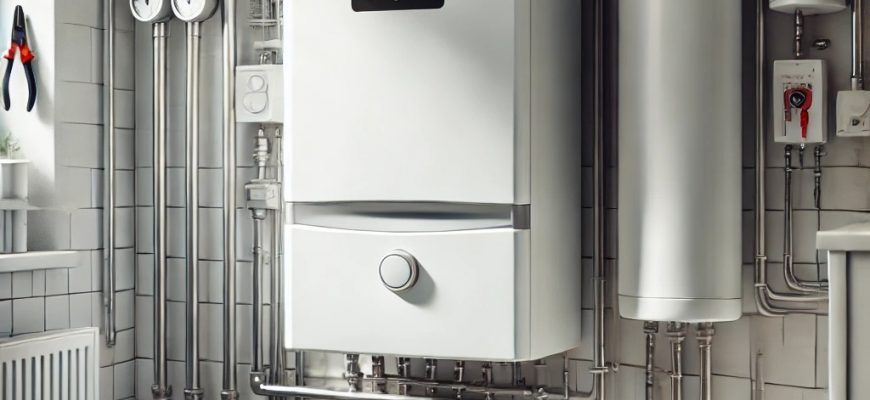
Choosing the right boiler for your property is very important for your comfort, energy efficiency, and heating costs. Whether you need a boiler for your home or your business, understanding the different types, sizes, and features will help you make a smart choice. This guide will explain the main things to think about when picking the perfect boiler for your needs.
Understanding Residential Boilers
Residential boilers are specifically designed to meet the heating and hot water needs of homes. They come in various types, including combi, system, and conventional boilers. Each type has its own advantages and is suited for different property sizes and heating requirements.
Types of Residential Boilers
- Combi Boilers: These are compact and provide both heating and hot water on demand, making them ideal for smaller homes with limited space. They eliminate the need for a separate hot water tank.
- System Boilers: These require a hot water cylinder but do not need a cold water tank. They are suitable for larger homes with multiple bathrooms, as they can supply hot water to several outlets simultaneously.
- Conventional Boilers: Also known as regular boilers, these are best for homes with existing traditional heating systems. They require both a hot water cylinder and a cold water tank, making them suitable for larger properties.
Factors to Consider When Choosing a Boiler
When selecting residential boilers, several factors should guide your decision:
1. Property Size
The size of your property directly influences the type and size of the boiler you need. Larger homes will require a more powerful boiler to ensure adequate heating and hot water supply. A qualified heating engineer can help assess your property and recommend the appropriate boiler size.
2. Hot Water Demand
Consider your household’s hot water usage. If you have a large family or multiple bathrooms, a system or conventional boiler may be more suitable than a combi boiler. For example, homes with high hot water demand may benefit from a boiler that can store hot water in a cylinder, allowing for simultaneous use at different outlets.
3. Fuel Type
Residential boilers can run on various fuels, including gas, oil, and electricity. The availability of fuel types in your area may influence your choice. Gas boilers are popular due to their efficiency and lower running costs, while oil boilers may be necessary in areas without a gas supply.
4. Energy Efficiency
Look for boilers with high energy efficiency ratings. Energy-efficient residential boilers can significantly reduce your energy bills and environmental impact. Modern boilers often come with features that enhance efficiency, such as modulating burners and smart controls.
5. Installation and Maintenance
Choosing a reputable installer is crucial for ensuring your boiler operates efficiently. Some manufacturers offer extended warranties if their boilers are installed by certified professionals. Additionally, regular maintenance is essential for keeping your boiler in good working order and prolonging its lifespan.
Common Mistakes to Avoid When choosing a boiler for your home, many people make these common mistakes:
- Underestimating Heating Needs: Picking a boiler that’s too small can leave your home cold and uncomfortable in winter.
- Oversizing the Boiler: Choosing a boiler that’s too big can waste energy and raise your bills. It’s important to find the right size.
- Ignoring Future Needs: Think about future changes, like a growing family or home renovations, that might affect your heating and hot water needs.
Exploring Commercial Boilers
For businesses, these are designed to handle larger heating demands and are built for durability and efficiency. These boilers can support various applications, from heating large buildings to providing hot water for industrial processes.
Key Differences Between Residential and Commercial Boilers
- Capacity:It typically has a higher output capacity to accommodate larger spaces and more significant hot water demands.
- Regulations: These are subject to different regulations and standards compared to residential models, often requiring more stringent safety measures.
- Installation Complexity: The installation of commercial boilers is generally more complex and may require a specialized contractor
Choosing the right boiler for your home or business is important and involves considering size, type, fuel, and efficiency. By knowing your needs and avoiding common mistakes, you can pick a boiler that provides comfort, efficiency and saves money.
If you need help choosing or installing a boiler, contact Hotline Trading today. Our experts are ready to help you find the perfect heating solution.
Why Expansion Tanks Are Essential for Your HVAC System
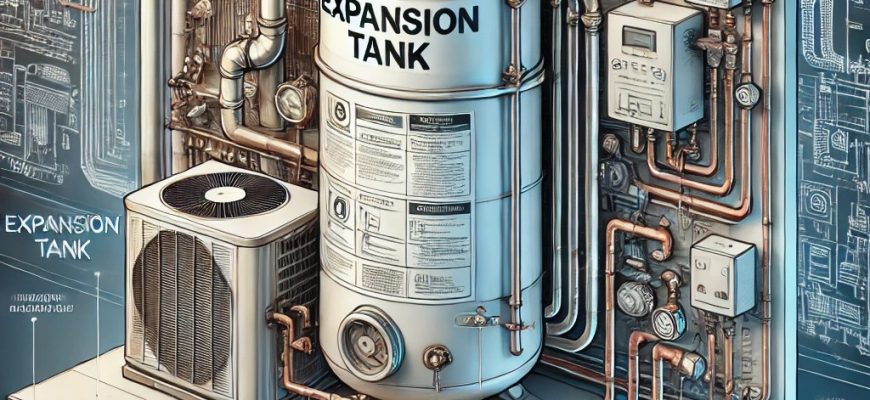
When it comes to HVAC maintenance one of the most yet often overlooked components is the expansion tank. These small but significant additions play an important role in ensuring the efficiency and longevity of your heating, ventilation, and air conditioning (HVAC) system. Here we will explore the importance of expansion tanks, how they function, and why tank installation should be considered an essential part of HVAC maintenance.
Understanding Expansion Tanks
An expansion tank is a device designed to absorb excess pressure in your HVAC system caused by the thermal expansion of water. As the water heats up, it expands, increasing the pressure within the closed system. Without an expansion tank, this pressure can cause significant damage to the system components, leading to costly repairs and potential system failure.
How Expansion Tanks Help Your HVAC System
Keeping Pressure in Check: The main job of an expansion tank is to keep the pressure in your HVAC system under control. When water heats up, it expands and needs somewhere to go. The expansion tank provides that space, preventing too much pressure from building up and ensuring everything runs safely.
Preventing Damage: High pressure can wear out parts of your HVAC system like pipes, valves, and pumps, leading to leaks or even bursts. An expansion tank helps avoid these issues by balancing the pressure, protecting your system from potential damage.
Boosting Efficiency: By maintaining the right pressure levels, expansion tanks help your HVAC system work more efficiently. This means your home stays at the right temperature more consistently, you use less energy, and you save on costs.
The Necessity of Proper Tank Installation
Proper installation is essential to the effective functioning of an expansion tank. Here’s why:
- Correct Sizing: The expansion tank needs to be the right size for your HVAC system. If it’s too small, it won’t handle the pressure properly. If it’s too big, it will waste space and money.
- Proper Location: Where you place the expansion tank is important. It should be installed on the supply side of the system, ideally near the boiler or heating unit’s intake. This ensures it can effectively handle the expanded water.
- Professional Installation: While doing it yourself might be tempting, having a professional install the expansion tank ensures it’s done correctly. Experts can also spot and fix any other issues in your HVAC system.
Benefits of Having an Expansion Tank
- Extended System Lifespan: By preventing pressure-related damage, an expansion tank can significantly extend the lifespan of your HVAC system. This means fewer repairs and replacements, saving you money in the long run.
- Improved Safety: High-pressure levels can be dangerous, leading to bursts or leaks that can cause water damage or even explosions. An expansion tank enhances the safety of your HVAC system by keeping pressure levels in check.
- Cost Savings: Investing in an expansion tank and ensuring proper HVAC maintenance can lead to substantial cost savings. You’ll avoid expensive repairs, reduce energy consumption, and enhance the efficiency of your system.
Signs You Need an Expansion Tank
- Frequent Pressure Relief Valve Discharges: If your pressure relief valve is frequently discharging water, it’s a sign that the system is experiencing high pressure. This is a clear indicator that you need an expansion tank.
- Unusual Noises: High pressure can cause banging or knocking noises in your pipes. If you hear these sounds, it’s time to check if an expansion tank is needed.
- Inconsistent Heating or Cooling: If your HVAC system is struggling to maintain consistent temperatures, it could be due to pressure-related issues that an expansion tank can resolve.
Expansion tanks are small but important parts of HVAC systems. They help keep pressure balanced, protect the system from damage, and ensure everything runs efficiently. To get the most out of an expansion tank, it’s important to have it installed correctly and to maintain your HVAC system regularly.
Don’t wait for high-pressure issues to arise in your HVAC system. Invest in an expansion tank now to help your system last longer, operate safely, and run efficiently.
For expert installation of expansion tanks and all your HVAC maintenance needs, contact Hotline Electrical Trading. Our skilled team is ready to assist you in keeping your HVAC system running smoothly. Reach out today to see how professional care can make a difference.
Understanding the Role of Chilled Water Buffer Tanks in Cooling Systems
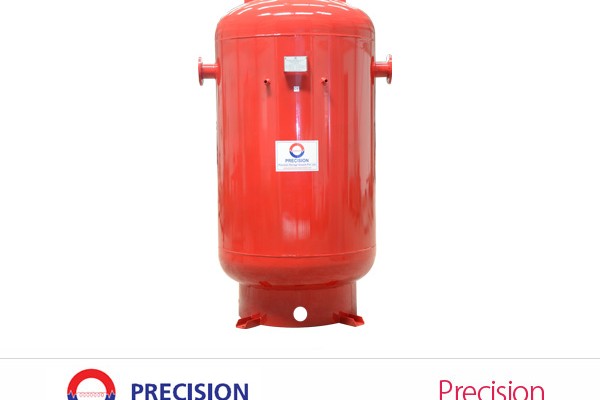
In modern engineering, especially when designing and operating cooling systems, chilled water systems are essential for controlling temperature. Within these systems, chilled water buffer tanks are very important. Here, we will explore the importance of these tanks, how they work, and why they are necessary for cooling setups.
What Are Chilled Water Buffer Tanks?
Chilled water buffer tanks are special tanks that store cold water in cooling systems. They help keep the system running smoothly by storing extra cold water when demand is low and releasing it when demand is high. The main job of these tanks is to keep the temperature and water flow steady, which improves the overall performance of the cooling system.
Importance of Chilled Water Buffer Tanks
1. Stabilizing Water Temperature
One of the primary benefits of chilled water buffer tanks is their ability to stabilize the temperature of the water within the cooling system. By storing excess chilled water, these tanks can quickly provide additional cooling capacity when demand spikes, preventing sudden temperature fluctuations that can disrupt system performance and comfort levels.
2. Improving System Efficiency
Chilled water buffer tanks contribute significantly to the efficiency of chilled water systems. By maintaining a steady flow of chilled water, these tanks reduce the frequency at which chillers need to cycle on and off. This not only conserves energy but also extends the lifespan of the chillers, as constant cycling can lead to wear and tear.
3. Enhancing Capacity Control
In large buildings or facilities where cooling demand can vary greatly, chilled water buffer tanks provide the necessary capacity control. They act as a buffer, absorbing excess chilled water during low-demand periods and releasing it during peak times. This buffering capability ensures that the system can handle varying loads without compromising on performance.
4. Reducing Pumping Costs
Using chilled water buffer tanks also helps lower pumping costs. They keep the water flow steady and reduce the need for the chiller to turn on and off frequently. This lowers the energy needed to pump chilled water through the system, leading to significant savings over time.
How Chilled Water Buffer Tanks Work
Chilled water buffer tanks are placed strategically in cooling systems, usually between the chiller and the distribution system. Here’s how they work step-by-step:
- Chilled Water Generation: The chiller makes chilled water and sends it to the buffer tank.
- Storage: The buffer tank holds the chilled water until it’s needed. When cooling demand is low, extra chilled water is stored in the tank.
- Distribution: When cooling demand goes up, the stored chilled water is released from the buffer tank into the distribution system, keeping the flow and temperature steady.
- Replenishment: As the stored chilled water is used, the chiller refills the buffer tank, ensuring there is always a supply of chilled water ready for use.
Design Considerations for Chilled Water Buffer Tanks
When designing chilled water buffer tanks, several factors must be considered to ensure optimal performance:
- Tank Size: The size of the buffer tank should be sufficient to handle the peak cooling demand of the system. It is important to calculate the required volume accurately to prevent under or over-sizing.
- Insulation: Proper insulation is necessary to minimize heat gain and maintain the efficiency of the chilled water stored in the tank.
- Material: The tank material should be durable and resistant to corrosion to ensure longevity and reliable performance.
- Location: The placement of the buffer tank should be strategic, allowing easy integration with the existing chilled water system and ensuring efficient operation.
Applications of Chilled Water Buffer Tanks
Chilled water buffer tanks are used in a variety of settings, including:
- Commercial Buildings: Large office buildings and commercial spaces benefit from the temperature stability and efficiency provided by chilled water buffer tanks.
- Industrial Facilities: In industries where precise temperature control is very important, such as manufacturing and pharmaceuticals, chilled water buffer tanks play a vital role.
- Institutional Buildings: Hospitals, schools, and universities use these tanks to ensure a reliable and efficient cooling system.
Chilled water buffer tanks are essential parts of modern cooling cooling setups. They provide many benefits like stabilizing temperature, improving efficiency, controlling capacity, and saving costs. By knowing how these tanks work, facility managers and engineers can make their chilled water systems perform better and be more reliable.
For more information on chilled water buffer tanks and how they can optimize your cooling setups, contact Hotline Trading LLC today. Our experts are here to help you design and implement the most efficient and effective cooling solutions customized to your needs. Reach out to us for a consultation and take the first step towards a more efficient cooling system.
Smart Spending: Tips for Budgeting and Financing Your Solar Water Heater Installation
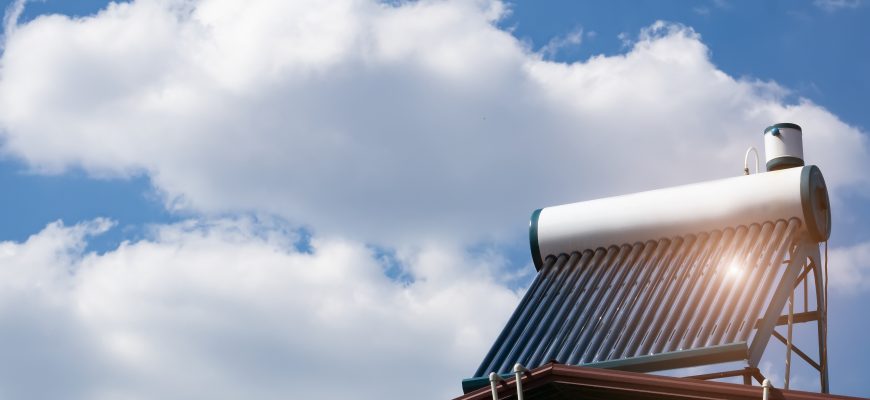
As energy costs continue to rise and sustainability becomes a growing priority, more homeowners are choosing solar water heaters for their cost-efficiency and environmental benefits. However, understanding the expenses and financing options for installing a solar hot water system can be daunting. we’ll provide practical tips for budgeting and financing your solar water heater installation, helping you make a smart investment that will deliver long-term benefits.
Understanding Solar Hot Water System Price
solar hot water system price can vary significantly depending on several factors, including the size of your household, the type of system you choose, and your geographical location. Generally, the cost of a solar water heater for home use ranges between AED 8,000 and AED 20,000. This includes the price of the solar panels, the storage tank, and the installation costs.
When assessing solar hot water system prices, it’s crucial to consider the following:
System Type: There are a few different types of solar water heaters you can choose from. Active systems use pumps to move water around, while passive systems let water circulate naturally. Active systems usually cost more, but they work better for larger households because they’re more efficient.
System Size: The size of the system you need depends on your household’s hot water demand. A larger system will cost more upfront but can provide sufficient hot water for a larger family, reducing the need for backup heating.
Installation Costs: Professional installation is necessary to ensure your solar water heater operates efficiently. Installation costs can vary based on your home’s location and the complexity of the installation.
Government Incentives: Many places offer incentives and rebates for installing solar water heaters. It’s worth checking out local programs to see if you can get some financial help, which can really bring down the overall cost.
Budgeting for Your Solar Water Heater
To make sure you can afford a solar water heater without breaking the bank, it’s important to budget wisely. Here are some easy tips to help you plan:
- Look at Your Finances: Check your savings, income, and monthly expenses to see how much you can comfortably spend on the solar water heater and its upkeep.
- Get Several Quotes: Reach out to multiple reliable suppliers and installers for detailed quotes. Compare the prices and services to find the best option that fits your budget.
- Think About Long-term Savings: Although the initial cost of a solar water heater might seem high, remember that it will save you money on energy bills over time. Calculate how much you’ll save in the long run to see the real value.
- Plan for Maintenance: Include the cost of regular maintenance in your budget to keep your system running smoothly. This can involve yearly inspections, cleaning, and any needed repairs.
Maximizing the Value of Your Investment
To get the most out of your solar water heater investment, consider the following tips:
- Optimize Your System: Ensure your solar water heater is installed in a location that receives maximum sunlight. Proper placement and orientation can significantly enhance efficiency.
- Energy-efficient Practices: Incorporate energy-efficient practices in your home, such as using low-flow showerheads and insulating your water pipes. This reduces the overall hot water demand, making your solar water heater more effective.
- Regular Maintenance: Keep up with regular maintenance to ensure your system operates at peak efficiency. Schedule annual inspections and address any issues promptly to avoid costly repairs
Investing in a solar water heater for your home is a smart move towards energy efficiency and sustainability. By understanding solar hot water system prices, budgeting effectively, and exploring various financing options, you can make an informed decision that benefits both your wallet and the environment.
Ready to make the switch to solar? Contact Hotline Trading today to learn more about our solar water heater solutions and how we can help you achieve a greener future. Our experts are here to guide you through every step of the process, ensuring a seamless and cost-effective installation.
Expert Tips for Maximizing the Lifespan of Your Electric Water Heater in the UAE
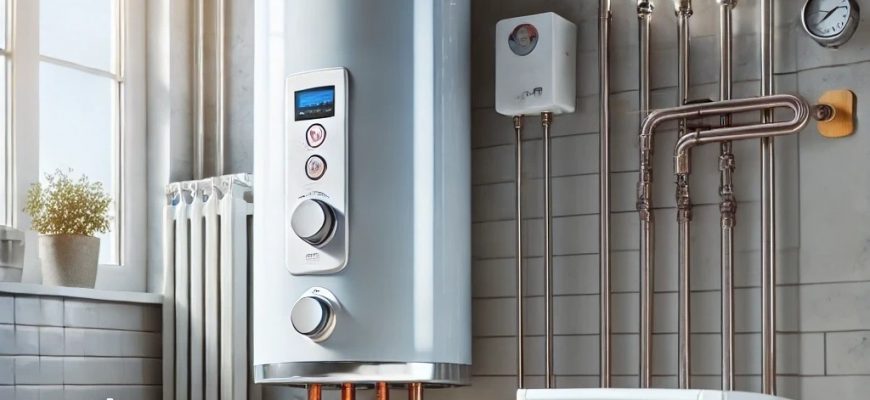
Electric water heaters are an essential part of every home in the UAE, providing the comfort of hot water for our daily routines, from morning showers to evening dishwashing. To ensure you get the most out of your investment in the best water heater in UAE, it’s important to take some proactive steps. Here are some practical tips to help you maintain and extend the life of your electric water heater for bathroom use.
1. Regular Maintenance
One of the most effective ways to extend the lifespan of your electric water heater is through regular maintenance. This includes:
Flushing the Tank: Over time, sediment can accumulate at the bottom of your water heater, making it less efficient. By flushing the tank at least once a year, you can clear out these sediments and keep your heater working efficiently.
Inspecting the Anode Rod: The anode rod is a crucial component that helps prevent your tank from rusting. It’s a good idea to check it every couple of years and replace it if it’s more than half worn out. This small effort can significantly extend the life of your water heater.
2. Temperature Settings
Setting your water heater to a moderate temperature, typically around 120°F (49°C), can save you energy and reduce the strain on your heater. High temperatures can lead to quicker wear and tear on the heating elements and tank, so keeping it moderate is a simple way to extend its lifespan.
3. Insulation
Ensuring your water heater and the surrounding pipes are properly insulated can prevent heat loss, making your heater more efficient. This means your heater doesn’t have to work as hard, which can help it last longer. Consider using an insulation blanket for the tank and insulating the first few feet of the hot and cold water pipes. This small step can make a big difference.
4. Check for Leaks
Regularly check for any signs of leaks around your water heater. Small leaks can turn into big problems if left unchecked, leading to significant damage and costly repairs. If you notice any leaks, address them immediately to prevent further issues.
5. Professional Inspections
While DIY maintenance is crucial, professional inspections should not be overlooked. Schedule a professional inspection at least once a year. An expert can identify potential issues early and provide the necessary repairs or adjustments.
6. Use Quality Parts
When repairs or replacements are needed, always use high-quality parts. Inferior parts may save you money upfront but can lead to more significant problems down the road. Ensure any replacements are compatible with your specific model of electric water heater.
7. Water Quality
The quality of water in your home can affect the lifespan of your water heater. Hard water, common in many parts of the UAE, can lead to mineral build-up. Installing a water softener can help mitigate this issue, ensuring your water heater operates efficiently for longer.
Extend the Lifespan of Your Electric Water Heater with Expert Tips from Hotline Trading. As your trusted water heater supplier in the UAE, Hotline Trading is dedicated to helping you get the most out of your investment. Our expert tips ensure top-notch maintenance and optimal settings for your water heater, keeping it efficient and reliable.
Don’t wait—enhance your water heater’s performance today!
Contact us now to discover how Hotline Trading can support your water heating needs. Visit our website or call us today!
Smart Spending: Tips for Budgeting and Financing Your Solar Water Heater Installation
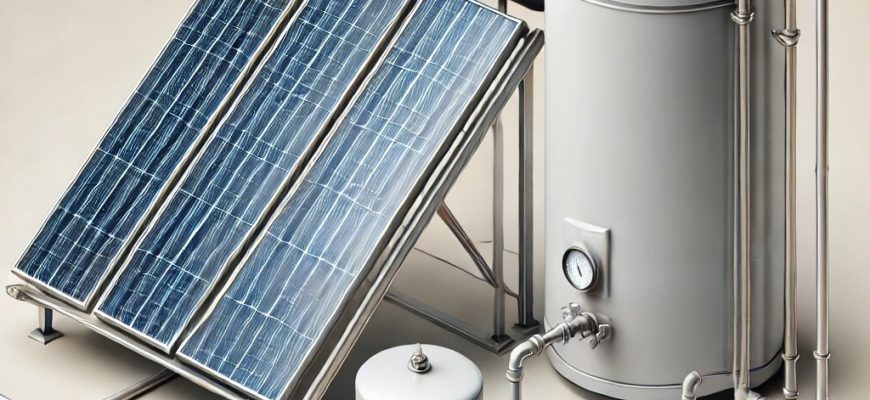
As we transition to more sustainable living, many homeowners are exploring eco-friendly options to reduce their environmental impact and save on energy costs. One such investment is installing a solar water heater. This system not only helps the planet but also offers significant long-term savings on your utility bills. However, understanding the cost of a solar hot water system and effectively managing your budget for this investment is essential. Here are some smart spending tips to help you budget and finance your solar water heater installation:
Understanding Solar Hot Water System Price
Before diving into budgeting and financing, it’s essential to understand the factors that influence the price of a solar hot water system. The cost can vary significantly based on several factors:
- System Type: There are different types of solar water heaters, such as active (with circulating pumps and controls) and passive systems (relying on natural convection). Active systems tend to be more expensive due to their complexity and efficiency.
- Size and Capacity: The size of the system you need depends on your household’s hot water demand. Larger systems with higher capacities will naturally cost more.
- Installation Costs: Professional installation is crucial for the optimal functioning of your system. Installation costs can vary based on your home’s location, roof type, and the complexity of the installation.
- Brand and Quality: The brand and quality of the solar panels and other components can impact the price. Investing in a reputable brand may cost more upfront but can ensure better performance and durability.
Budgeting for Your Solar Water Heater
Investing in a solar water heater is a smart move that can save you money on your energy bills while reducing your carbon footprint. However, it’s crucial to plan your budget carefully to ensure you make the most of this eco-friendly upgrade. Here are some steps to help you budget effectively for your solar water heater:
-
Assess Your Finances
The first step in budgeting for your solar water heater is to take a close look at your current financial situation. Determine how much you can comfortably afford to spend upfront and whether you need to explore financing options such as loans or leases. Remember, while the initial investment may be significant, the long-term savings on your energy bills can make it a worthwhile investment.
-
Research and Compare
Once you have a clear understanding of your budget, it’s time to start researching different solar water heater options. Compare prices, efficiency ratings, and quality to find a system that fits your needs and budget. Keep in mind that higher-efficiency systems may cost more upfront but can provide greater long-term savings.
-
Calculate Long-Term Savings
One of the biggest advantages of a solar water heater is the potential for significant savings on your energy bills. Take the time to calculate how much you can expect to save over the lifetime of the system. This will help you determine whether the initial investment is worthwhile and can also help you justify the cost to your family.
-
Get Multiple Quotes
When it comes time to install your solar water heater, be sure to get quotes from several reputable installers. This will give you a clearer picture of the installation costs and help you negotiate better deals. Keep in mind that the cheapest quote may not always be the best option, as quality of work and customer service should also be considered.
-
Plan for Maintenance
While solar water heaters require relatively little maintenance compared to traditional systems, it’s still important to factor in the cost of regular maintenance. This may include cleaning the collector panels, checking for leaks, and ensuring the system is operating efficiently. By budgeting for these costs upfront, you can avoid unexpected expenses down the line.
Investing in a solar water heater for your home is a savvy decision that can benefit both your wallet and the environment. By harnessing the power of the sun, you can enjoy long-term savings on your energy bills while contributing to a more sustainable future. However, understanding the solar hot water system price and budgeting effectively for this investment is crucial.
For expert advice and professional installation services, contact Hotline Trading. Our team is ready to help you transition to a more sustainable future with a solar water heater customized to your needs. Reach out to us today to start your journey towards energy efficiency and savings.

